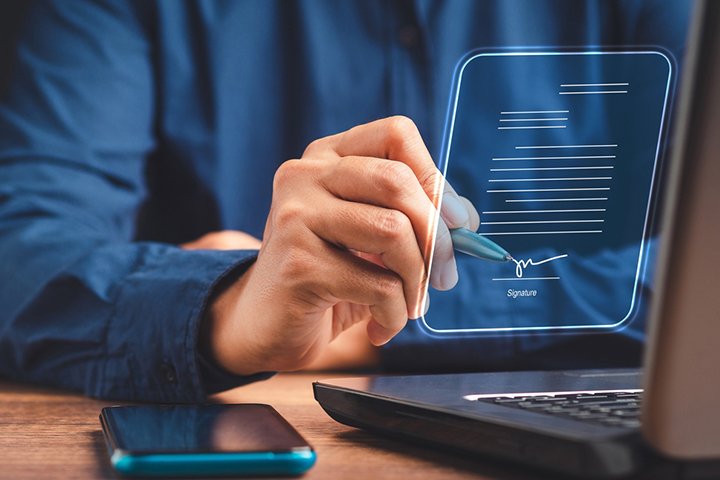Over the last two years, people have witnessed a lot of changes. The Covid-19 pandemic completely revolutionized the way businesses are run and how people use technology. One technology among them stands out digital signature. According to Allied Market Research, the global digital signature market is expected to reach $61.91 billion by 2030, growing at a CAGR of 33.2% from 2021 to 2030. High acceptance of digital signatures in internal processes in companies and improved efficiency leads to a reduction in costs have boosted the growth of the market.
Digital signature technology may seem quite simple and already at its peak in terms of features and upgrades. However, it has much more to offer and experts believe that it is nowhere close to its true potential. There will be several features introduced by digital signature companies including simple electronic signatures to qualified signatures. A qualified signature refers to the signer’s signature using a qualified certificate. This qualification enhances data security and offers a guarantee to both the signer and the customer.
Digital signature and blockchain
When blockchain was introduced, it was not essentially intended for digital signatures. However, with blockchain, you can imagine the future of digital signatures where security is constantly protected in digital code and stored in the shared database without risk of deletion, revision, and tampering. Every document, legal agreement, task, and payment has a digital record and a signature is a vital part of it for validation and verification.
A digital signature is essentially an electronic equivalent to a traditional wax seal with a private key. It can be verified by the receiver with public key cryptography. A digital signature ensures that the contents of documents are not changed before it reaches their destination. It is used for legal activities for verifying and signing contracts.
The advent of blockchain in the digital signature has opened new doors of opportunities. Digital signatures stored on the blockchain can live independently of the object the signature refers to. Furthermore, it eliminates the need for central certificate authority of the server, which is the current challenge of dependencies among e-signature systems. Moreover, customers can use parallel signing and independent verification with the use of blockchain in the digital signature.
Digital signature and artificial intelligence (AI)
The trend of AI in digital signatures is somewhat expected given the abilities of AI. AI has already proven to be a disruptive force in many other industries and has entered the digital signature market.
In the future, artificial intelligence (AI) would play a major role in the digital signature market. AI has the ability to completely transform the landscape by generating automated systems based on data gathered by humans that contain correct documentation and signatures. AI can offer templates and choose the proper signature method for every kind of document, which will streamline the signing process for all parties involved. Moreover, it would help increase uniformity.
AI can help in recognizing which documents needs to be generated and suggest which should be the correct template for the signing process. This means that the AI system would configure the template, select the right signature method for the given type of document, and prepare all the steps essential for the order of signing.
Along with this, AI has the potential to automate and facilitate several processes that are already in use. For instance, several contracts of retailer websites over purchasing from a distance and offer a ‘cooling-off period’. This gives customers some amount of time to change their minds and they are allowed to sign the contract after the cooling-off period. Here AI can help to set up contracts and prepare signing with the right settings & measures.
Use of mobile phones in digital signature
This is the age of connectivity and our lives cannot function without mobile devices. In fact, there are only a few things you can do without mobile phones. From shopping to even finding a life partner, everything is done through mobile devices. Thus, using mobile devices for signing documents is an obvious next step. We are already using SMS OTM configuration, which allows companies to verify the user. With more and more digital ID’s being created, the use of mobile devices for digital signatures will grow.
There are just a few things we can think of that may happen in the coming. Since the world is rapidly adopting digitization and users have become more tech-savvy, signing contracts digitally would increase in the future. The Covid-19 pandemic has given the industry a push and encouraged companies to invest in digital signature solutions. From the use of blockchain and AI, the possibilities are endless and broad. However, it is hard to predict the future of digital signatures, we can expect the boom of AI, mobile devices, and blockchain in the digital signature industry for sure.


